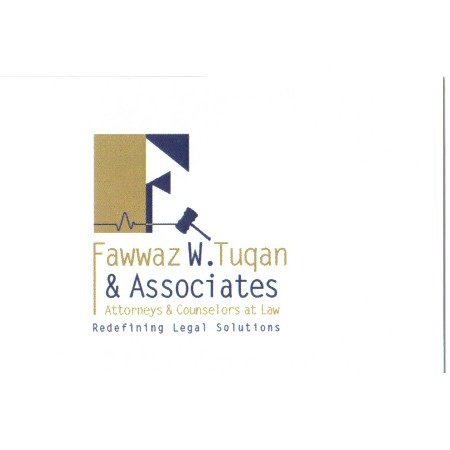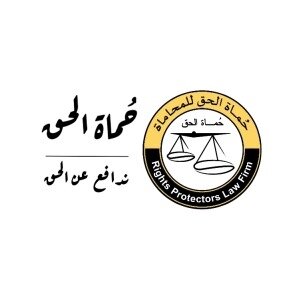Best Public-Private Partnerships (PPP) Lawyers in Amman
Share your needs with us, get contacted by law firms.
Free. Takes 2 min.
List of the best lawyers in Amman, Hashemite Kingdom of Jordan

About Public-Private Partnerships (PPP) Law in Amman, Hashemite Kingdom of Jordan
Public-Private Partnerships (PPPs) in Amman, and throughout the Hashemite Kingdom of Jordan, are collaborative agreements between government entities and private sector companies to design, finance, construct, manage, or operate projects that serve the public interest. These partnerships are often used to develop large-scale infrastructure such as transportation networks, energy plants, water supply systems, schools, hospitals, and public facilities. PPPs provide access to private-sector expertise and investment while ensuring projects align with governmental goals for economic growth and social benefit. The Jordanian government has established a clear legal framework to regulate and promote PPPs, helping to foster confidence among both local and international investors.
Why You May Need a Lawyer
PPPs involve complex contractual, financial, and regulatory requirements. Whether you are a private company interested in bidding on a PPP project, a consortium member, a financial institution, or a government authority, legal challenges may arise throughout the PPP lifecycle. Common situations where legal advice is essential include:
- Understanding PPP regulations, requirements, and procedures before engaging in a project.
- Drafting, negotiating, or reviewing contracts and project documents to ensure compliance and risk allocation.
- Participating in public tenders and ensuring a fair procurement process.
- Resolving disputes related to contract performance, delays, or project modifications.
- Securing project finance agreements and understanding financial obligations.
- Ensuring compliance with local regulatory and licensing requirements.
- Addressing issues concerning land acquisition, permits, or environmental standards.
- Advising on tax, customs, labor, and insurance matters specific to PPP projects.
Local Laws Overview
The primary law governing PPPs in Jordan is the Public-Private Partnership Law No. 17 of 2020, which replaced earlier frameworks to streamline the development and management of PPP projects. Key aspects include:
- Establishment of the PPP Unit within the Ministry of Investment, serving as the central coordinating body for all PPP activities.
- A defined legal process for the initiation, assessment, approval, tendering, award, and monitoring of PPP projects.
- Clear guidelines for risk sharing, value for money assessment, transparency, and public sector oversight.
- Permitted contractual structures include Build-Operate-Transfer (BOT), Build-Own-Operate (BOO), Lease-Develop-Operate, and more.
- Mechanisms for dispute resolution, including negotiation, mediation, and arbitration.
- Requirements for environmental and social impact assessment and compliance with relevant sectoral regulations.
- Provisions for guarantees, step-in rights, and termination in case of serious breaches.
- Rules governing foreign investment participation and relevant approvals.
Frequently Asked Questions
What types of projects can be developed through PPPs in Jordan?
Most infrastructure and public service projects, including transportation, energy, water, healthcare, and education, can be delivered via PPP arrangements if they provide public benefit and align with national development plans.
Who oversees PPP projects in Amman and Jordan?
The PPP Unit at the Ministry of Investment is the primary authority responsible for overseeing the identification, preparation, appraisal, procurement, and monitoring of PPP projects.
Can foreign companies participate in PPP projects in Amman?
Yes, foreign companies can participate in PPP projects, subject to compliance with local investment laws, sector-specific regulations, and any country-of-origin restrictions outlined during the bidding process.
How is a PPP project initiated?
A PPP project is typically initiated by a relevant government entity, which submits a proposal to the PPP Unit. After initial screening and approval, a feasibility study and public tender process follow.
What is the typical duration of a PPP contract?
PPP contracts in Jordan can vary in duration, commonly ranging from 10 to 30 years, depending on the scale and complexity of the project.
How does the bidding process work?
Projects are awarded through a competitive tendering process. The PPP Unit manages the prequalification, bid submission, evaluation, and contract award phases to ensure transparency and competitiveness.
What types of PPP contractual models are used in Jordan?
Common structures include Build-Operate-Transfer (BOT), Build-Own-Operate (BOO), and concession agreements. The model chosen depends on project needs and financing structure.
What are the primary risks in PPP projects?
Key risks include construction delays, changes in law, financial shortfalls, demand risks, and political or regulatory changes. Contracts address risk allocation between the public and private partners.
How are disputes resolved in PPP projects?
Disputes are typically resolved through multi-stage mechanisms such as negotiation, mediation, or arbitration, as stipulated in the PPP contract. Jordan has a strong legal framework for enforcement of arbitration awards.
Are there incentives for private sector participation in PPPs?
Yes, the government may offer incentives such as tax benefits, land grants, streamlined licensing, or guarantees to promote private sector investment in PPP projects.
Additional Resources
Individuals and companies seeking more information or assistance with PPPs in Amman, Hashemite Kingdom of Jordan may consult the following:
- The PPP Unit at the Ministry of Investment - the official body for PPP project development and coordination.
- The Jordan Investment Fund - supporting investment and financing in priority sectors including infrastructure.
- The Jordan Chamber of Industry and Jordan Chamber of Commerce - for private sector networking and advocacy.
- International Finance Corporation (IFC) and World Bank offices in Amman - offering guidance on best practices and project financing.
- Licensed law firms and consulting companies specializing in PPP law and infrastructure development.
Next Steps
If you are considering participating in or developing a PPP project in Amman, start by familiarizing yourself with the relevant laws and project procedures. Seek preliminary advice from specialized legal practitioners to identify potential risks, legal requirements, and project opportunities. Engage with the PPP Unit at the Ministry of Investment early in your planning process. For support with tender participation, contract negotiation, dispute resolution, or regulatory compliance, consult an experienced lawyer or legal team with expertise in PPPs and local law. Proper legal guidance can help safeguard your interests, improve your project's success rates, and ensure compliance with all applicable legal and regulatory standards in the Hashemite Kingdom of Jordan.
Lawzana helps you find the best lawyers and law firms in Amman through a curated and pre-screened list of qualified legal professionals. Our platform offers rankings and detailed profiles of attorneys and law firms, allowing you to compare based on practice areas, including Public-Private Partnerships (PPP), experience, and client feedback.
Each profile includes a description of the firm's areas of practice, client reviews, team members and partners, year of establishment, spoken languages, office locations, contact information, social media presence, and any published articles or resources. Most firms on our platform speak English and are experienced in both local and international legal matters.
Get a quote from top-rated law firms in Amman, Hashemite Kingdom of Jordan — quickly, securely, and without unnecessary hassle.
Disclaimer:
The information provided on this page is for general informational purposes only and does not constitute legal advice. While we strive to ensure the accuracy and relevance of the content, legal information may change over time, and interpretations of the law can vary. You should always consult with a qualified legal professional for advice specific to your situation.
We disclaim all liability for actions taken or not taken based on the content of this page. If you believe any information is incorrect or outdated, please contact us, and we will review and update it where appropriate.















